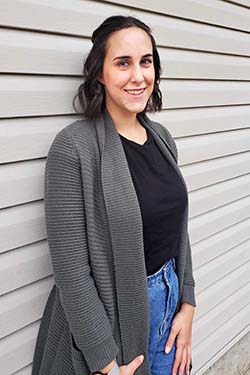The Realities of Literacy
In the first semester of my education degree, I decided it was a good idea to volunteer so I could start building my resume. I saw that a local non-profit which assisted students with dyslexia wanted admin volunteers. To be completely honest, I signed up because it sounded like an “easy” weekend position, but I’m glad to say it quickly became more impactful than I anticipated. While working here, I saw the importance of this service for students. However, I also learned about the long waitlist of families and came to understand the harsh reality that these services weren’t the most accessible.
Following this realization, my passion for working with students with different needs continued to grow. I started tutoring for another organization working with someone who had undiagnosed dyslexia. This person opened my eyes to the difficulty of navigating a world where language isn’t always the easiest to understand. What I understood to be “simple” grammar rules became more and more complex, and even I found myself confused at times.
This individual worked so hard practicing reading and writing, and I could see their frustration. They taught me resilience, hard work and perseverance. Now, as a student going into my final semester, I’ve had time to reflect on these experiences and the barriers to literacy.
In school, I was taught that literacy was simply knowing how to read and write, but it’s so much more. Literacy is essential to understanding the world around us and a vital tool for interacting in our society. Just think – how many times have you needed to write an email, read a blog like this one, or interpret nutrition labels in your everyday life?
Before volunteering in my community, I never thought about how these everyday tasks could be a huge mountain to climb for some. Not only this, but resources to help can be expensive for families and difficult to find. So many children and adults go through life with undiagnosed conditions, making literacy even more difficult to attain.
In order to make literacy more accessible to others, we need to rethink what it means and understand its realities. Unfortunately, the world simply isn’t accessible for people who experience different reading and writing exceptionalities, such as dyslexia. It is our job as advocates for literacy to challenge our views of literacy and how we define it.
As a future teacher, my experiences have inspired me to offer different ways for students to show their knowledge so they can succeed. I don’t want my students to think that being literate simply means being a good reader or writer, but rather for them to understand that we can all communicate in different ways.
I hope our world can continue to be more accommodating for those with different needs and abilities. I encourage others to rethink their definition of literacy and to become more involved in literacy initiatives in their own community. My involvement was one of the most eye-opening experiences, and I feel lucky to have had it.
Published September 29, 2021


